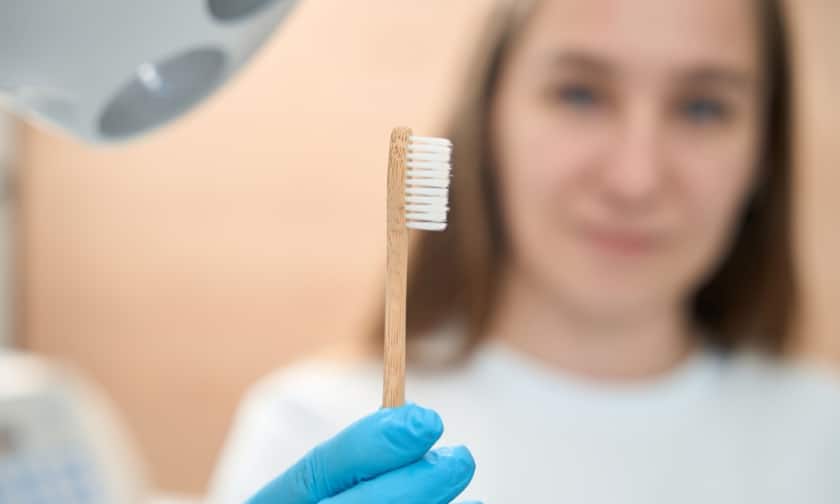Poor Dental Hygiene Warning Signs You Shouldn’t Ignore

Maintaining proper dental hygiene is crucial for your overall health. Ignoring good oral care can lead to several dental issues, some of which may affect your overall well-being. Poor dental hygiene doesn’t always show immediate symptoms, but there are warning signs you shouldn’t ignore. These signs could indicate underlying problems that need professional attention. Let’s explore the common symptoms of poor dental hygiene and why they matter.
Persistent Bad Breath
Bad breath, or halitosis, is one of the most common signs of poor dental hygiene. If your breath stays unpleasant even after brushing, it may indicate a buildup of bacteria in your mouth. Plaque and food particles left between your teeth can cause this problem. Regular brushing and flossing can help, but persistent bad breath may require a visit to the dentist to rule out gum disease or other health issues.
Bleeding Gums
Bleeding gums, especially when you brush or floss, are never normal. This can be a sign of gingivitis, the earliest stage of gum disease, caused by plaque buildup. If ignored, gingivitis can progress into more severe gum disease, which could lead to tooth loss. If you notice bleeding or swollen gums, it’s time to improve your dental hygiene and consult a dentist.
Receding Gums
Receding gums occur when the gum tissue around your teeth pulls back, exposing more of the tooth or its root. This condition can directly result from poor dental hygiene, especially when plaque and tartar build-up along the gum line. Receding gums increase your risk of tooth decay and sensitivity. If you notice any signs of receding gums, see your dentist immediately.
Tooth Sensitivity
Tooth sensitivity is another warning sign that something might be wrong with your dental hygiene. This condition occurs when the enamel on your teeth wears down, often due to plaque buildup. Sensitive teeth can cause discomfort when consuming hot or cold foods and drinks. If you experience increased sensitivity, a dentist can treat the underlying cause and help protect your teeth.
Discolored Teeth
Stains on your teeth can develop due to poor dental hygiene. Plaque buildup and food or drink can cause yellow or brown discoloration on your teeth. If you neglect brushing and flossing, this discoloration can become more pronounced. Professional cleaning can remove surface stains and help restore the natural whiteness of your teeth. However, if left untreated, the discoloration may indicate more serious issues, such as decay or cavities.
Loose or Shifting Teeth
Loose or shifting teeth can result from gum disease, which is often caused by poor dental hygiene. As gum disease progresses, it weakens the support structure around your teeth, leading to movement. If you notice your teeth becoming loose or shifting positions, this may indicate an advanced stage of gum disease. It’s essential to seek dental care immediately to prevent tooth loss.
Painful or Sensitive Jaw
If you experience pain or discomfort in your jaw, this can also be related to poor dental hygiene. Issues like tooth decay, gum infection, or bruxism (teeth grinding) can cause jaw pain. These problems often worsen if left untreated. Regular dental check-ups can help identify the underlying cause and prevent further complications.
Dry Mouth
A dry mouth is a common warning sign of poor dental hygiene. Saliva plays a crucial role in washing away food particles and bacteria. A decrease in saliva production can lead to an increase in plaque buildup and tooth decay. Poor dental hygiene can also exacerbate dry mouth, creating a cycle of worsening oral health. It’s worth talking to your dentist if your mouth is dry frequently.
Cavities and Tooth Decay
Cavities and tooth decay are direct results of poor dental hygiene. Plaque, which is made up of bacteria, acids, and food particles, forms on your teeth. If you don’t brush and floss regularly, plaque hardens into tartar, which can lead to cavities. The more plaque and tartar you have, the higher your risk of tooth decay. Routine dental visits can help catch cavities early and prevent further damage.
Address Poor Dental Hygiene Early for Healthier Teeth
Good dental hygiene is essential for maintaining overall oral health. Taking action immediately is necessary if you notice any warning signs listed above. Regular brushing, flossing, and professional dental cleanings are key to preventing these issues. If you’re experiencing any of these symptoms, don’t wait. Schedule a visit to your dentist to ensure your dental hygiene is on track and to avoid more serious health problems in the future.





